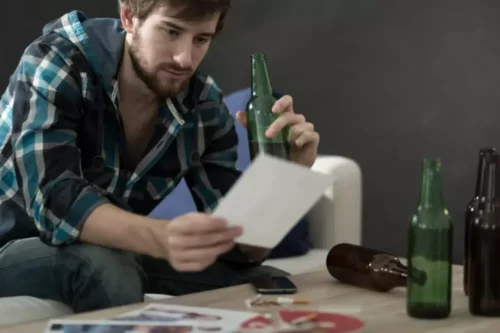Sober living
Peer Pressure: Yes, It’s Easier To Give In, But You Have Options

Usually, the term peer pressure is used when people are talking about behaviors that are not considered socially acceptable or desirable, such as experimentation with alcohol or drugs. According to child and adolescent psychiatrist Akeem Marsh, MD, “it’s very easy to be influenced by peer pressure as we humans are wired as social creatures.” They gain the strength needed to say “No,” even if it may be unpopular with friends.
- Unspoken pressure may be harder to resist because it can seem easier to go along with the crowd in order to fit in, especially when there’s no explicit pressure to do something.
- Saying “no” can be hard, but it’s necessary to set healthy boundaries in relationships.
- Peer pressure can have both positive and negative effects.
- Peer pressure, that feeling that you have to do something to fit in, be accepted, or be respected, can be tough to deal with.
- Professional therapy can help individuals of any age to learn essential skills to overcome peer pressure.
- But when it comes down to it, teens want to know and value their parents’ opinions — especially on tough topics such as sex and drug use.
How Can I Know It’s Peer Pressure?

Passive peer pressure, sometimes called unspoken pressure, may have more influence over behavior than active peer pressure. Unspoken pressure may be harder to resist because it can seem easier to go along with the crowd in order to fit in, especially when there’s no explicit pressure to do something. People who don’t feel pushed into something may have a harder time finding an opportunity to refuse. Peer pressure occurs when a peer group exerts direct or indirect pressure Substance abuse to do certain actions.
What Are Examples of Positive Peer Pressure?
Role playing can feel like too much pressure to some young people. Consider as an alternative using an example from TV or a movie. When a teachable moment presents itself, ask how your teen would have responded to a similar situation. Or as what is indirect peer pressure you’re riding together in a car you may be exposed to real life situations on the streets around you. Comment on what you notice and ask your teen to consider how the kids you pass should handle a given situation. These strategies allow teens to develop skills without forcing them to focus on themselves.
Some things a teen can do to handle peer pressure include:

Nurture connections with those who build you up as is, not those who require you to compromise core aspects of yourself to belong. Meet new potential friends through positive activities that interest you, or lean on family and childhood friends who’ve known the real you all along. Most importantly, true friendships arising from mutual care make you feel free as compared to those conditioned on some rules at the time of how to tackle peer pressure. Peer pressure can be challenging to resist, but there are effective methods and techniques you can use to stand firm in your values and choices while dealing with peer pressure.
This phenomenon (called trolling) is an incredibly pervasive form of negative peer pressure found on https://ecosoberhouse.com/ social media. There have also been examples of harmful online challenges that have the potential to negatively impact a child’s health. Teens may be tempted to give in to negative peer pressure because they want to be liked or fit in, they are afraid of being made fun of, or they want to try something other teens are doing. Negative peer pressure will remain a part of a teen’s life into adulthood, which is why it is important for teens to learn how to deal with it. It can decrease self-confidence and lead to poor academic performance, distancing from family members and friends, or an increase in depression and anxiety. Left untreated, this could eventually lead teens to engage in self-harm or have suicidal thoughts.
Get our weekly newsletter for practical tips to strengthen family connections.
When we feel that we do not fit in, we may consequently find ourselves avoiding social situations. Asking a teenager to engage in behavior that goes against his or her moral code or family values is a type of negative pressure. Research has long shown peer pressure can increase the risk someone will try drugs, alcohol, or cigarettes. Some people are more affected by peer pressure than others, just as some people are more likely to experience addiction than others.
- Being aware of, and carefully choosing the influence of peers that will lead to healthy and happy experiences is a lifelong process.
- You might see your friends experimenting with drugs and alcohol and it’…
- If you are unsure of how to even bring up the topic, professional therapy can bridge the gap by offering a safe and confidential space for you to share your concerns.
- Not all peer pressure is negative, sometimes your friends might encourage you to do things that are positive like study hard for exams and learn new skills to excel in your career.
But as children age, parents’ influence decreases and the opinion of peers becomes more and more important. This is also a stage in life where friend groups are of utmost importance and the need to fit in is a major factor in decision making. Peers influence most aspects of a teen’s life,including how teens dress, what music they listen to, and what kind of activities they are involved in. Peer pressure can be direct or indirect, but it is almost always present. Learning to handle peer pressure helps a teen mature and learn positive ways to get along with others. This includes teaching them to say “No” effectively — stating their position clearly, standing their ground, while still maintaining relationships.

It may not be easy for your child to confide in you about the issues they are faced with. Give them some time and space if they feel apprehensive to do so. Depending on the situation, you may offer help in various ways. One way is to notify someone of authority, who is in a position intervene.

Peer Pressure in Older Teens and Young Adults
It sounds like someone telling you to stop worrying, start having fun, and be part of the group by participating in something you don’t feel comfortable with. It may also be a threat, such as, “You can’t hang out with us if you’re not going to drink.” You can experience peer pressure from people without them saying anything to you, and you can experience it from direct remarks made by others. Adults are not exempt from facing societal expectations and peer judgment or influence. For example, you may carry the pressure of academic achievement into your career. Peer pressure in younger children tends to be limited to copying bad behaviors such as acting out or taking things that don’t belong to them.


